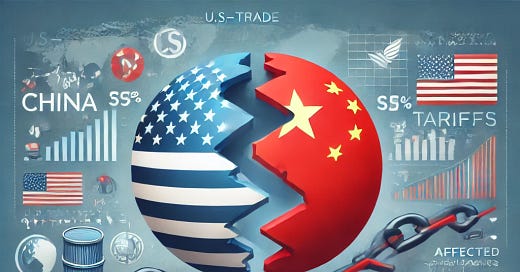The Global Economic Implications of the U.S.–China Trade Tensions
In recent years, the economic relationship between the United States and China has been marked by escalating trade tensions, leading to significant global economic repercussions. This article explores the origins of these tensions, their impact on international trade, and the broader implications for the global economy.
Origins of U.S.–China Trade Tensions
The trade tensions between the U.S. and China have been fueled by several key factors:
Trade Imbalances: The U.S. has expressed concerns over its substantial trade deficit with China, which reached $310.8 billion in 2023.
Intellectual Property Issues: Allegations of intellectual property theft and forced technology transfers have been central to the disputes.
Market Access: U.S. businesses have faced challenges accessing Chinese markets due to regulatory barriers and state subsidies favoring domestic firms.
Impact on International Trade
The imposition of tariffs and counter-tariffs has disrupted global trade patterns:
Supply Chain Disruptions: Companies reliant on cross-border supply chains have faced increased costs and uncertainties, leading some to relocate production to other countries.
Commodity Markets: Agricultural exports from the U.S. to China have declined, affecting farmers and related industries.
Broader Global Economic Implications
The U.S.–China trade tensions have had several wider economic effects:
Global Growth Slowdown: The International Monetary Fund (IMF) has warned that prolonged trade disputes could reduce global GDP growth by 0.5% in 2024.
Market Volatility: Financial markets have experienced increased volatility due to uncertainties surrounding trade policies.
Shift in Trade Alliances: Countries are exploring new trade partnerships to mitigate the impact of U.S.–China tensions.
Conclusion
The ongoing trade tensions between the U.S. and China have far-reaching implications for the global economy. Addressing these issues through diplomatic negotiations and multilateral cooperation is essential to restore stability and promote sustainable economic growth worldwide.





